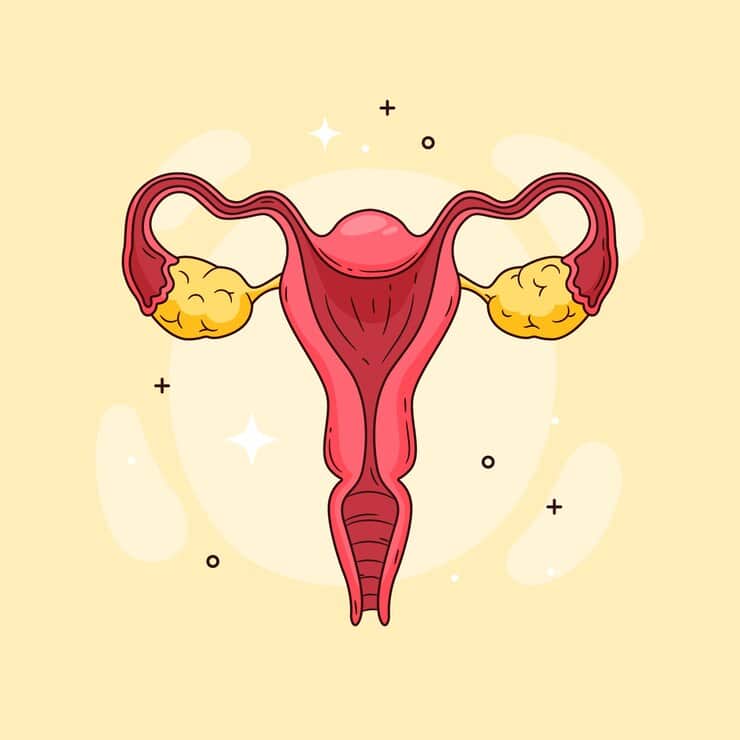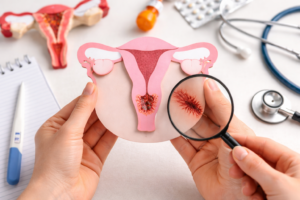The uterus is a vital organ responsible for nurturing and maintaining the health of a developing baby until delivery. Typically, a mature woman’s uterus is about the size of a fist, measuring approximately 8 cm in length, 5 cm in width, and 4 cm in thickness. However, in some cases, the uterus may enlarge, leading to what is known as a bulky uterus.
What is a Bulky Uterus?
A bulky uterus refers to an enlarged uterus that can occur for various reasons, including pregnancy, connective tissue growth, endometrial gland enlargement, and muscle expansion. While it is normal for the uterus to expand during pregnancy, an enlarged uterus apart from pregnancy can be a cause for concern and may require medical attention.
Causes of a Bulky Uterus
Several factors can contribute to the causes of a bulky uterus:
- Age: Women over the age of 35 are more likely to develop fibroids, which can lead to an enlarged uterus.
- Genetics: A family history of fibroids may predispose women to a larger uterus.
- Lifestyle Factors: Obesity, alcohol consumption, smoking, lack of physical activity, environmental pollution, hormonal imbalances, or exposure to hormones in food or medications can all contribute to a bulky uterus.
Symptoms of a Bulky Uterus
In many cases, women may not experience any symptoms of a bulky uterus and may only discover it during a routine pelvic examination. However, some women may notice unusual bulkiness or bloating around the abdomen, or that their clothing feels tighter than usual. Common symptoms include:
- Heavy bleeding during periods, large blood clots, spotting between periods, or prolonged and painful periods.
- Anemia due to heavy bleeding, leading to fatigue or weakness.
- Constipation, bloating, frequent urination, or even incontinence due to the uterus pressing on the bladder and rectum.
- Pain in the legs, pelvis, lower back, or abdomen, as well as discomfort during sex.
- Fertility issues, including difficulty conceiving or maintaining a pregnancy.
Read More: What to Avoid After an IUI Procedure: Key Tips for a Successful Pregnancy
Bulky Uterus in Early Pregnancy
A bulky uterus in early pregnancy is usually a normal response to the growing baby. However, if the uterus appears enlarged for reasons other than pregnancy, it could indicate underlying conditions such as fibroids or adenomyosis. These conditions can negatively affect a woman’s fertility and overall health.
Impact on Fertility
A bulky uterus, especially when caused by adenomyosis, can have a significant impact on female fertility. Adenomyosis can reduce the chances of implantation and pregnancy by affecting the endometrial function and receptivity. It can also impair uro-tubal transport, making conception more challenging.
Women facing infertility due to a bulky uterus should seek the guidance of a fertility specialist. In some cases, hormone therapy can improve fertility, while surgery may be necessary if conception remains unsuccessful.
Treatment of Bulky Uterus
The treatment of bulky uterus largely depends on the underlying cause. Some of the common treatments include:
- Myomectomy: This surgical procedure involves the removal of fibroids, which can be performed laparoscopically or through a larger abdominal incision.
- Uterine Artery Embolization: A minimally invasive procedure where a catheter is used to block the blood supply to the uterus, causing it to shrink.
- Hormonal Therapy: Medications containing progesterone and estrogen can help manage uterine fibroids, either through injections or oral consumption.
- Non-Hormonal Therapy: Medications without hormones, such as metformin, are used to treat an enlarged uterus.
Can You Get Pregnant with a Bulky Uterus?
Yes, it is possible to conceive even with a bulky uterus. While certain conditions like fibroids or adenomyosis can pose challenges, many women with an enlarged uterus can still conceive. If you have been diagnosed with a bulky uterus, it’s essential to consult with a fertility specialist to explore your options. Many women successfully become pregnant with appropriate treatment.
Conclusion
A bulky uterus can be a complex condition with various causes and symptoms. While it may not always impact your health, understanding the underlying factors and seeking timely treatment can help manage the condition effectively. Whether you are planning to conceive or simply want to address the symptoms, consulting a healthcare professional is crucial in managing a bulky uterus.









 No need to worry, your data is 100% Safe with us!
No need to worry, your data is 100% Safe with us!
1 thought on “Bulky Uterus: Causes, Symptoms, Treatment & Pregnancy Concerns”
Blue Techker You’re so awesome! I don’t believe I have read a single thing like that before. So great to find someone with some original thoughts on this topic. Really.. thank you for starting this up. This website is something that is needed on the internet, someone with a little originality!